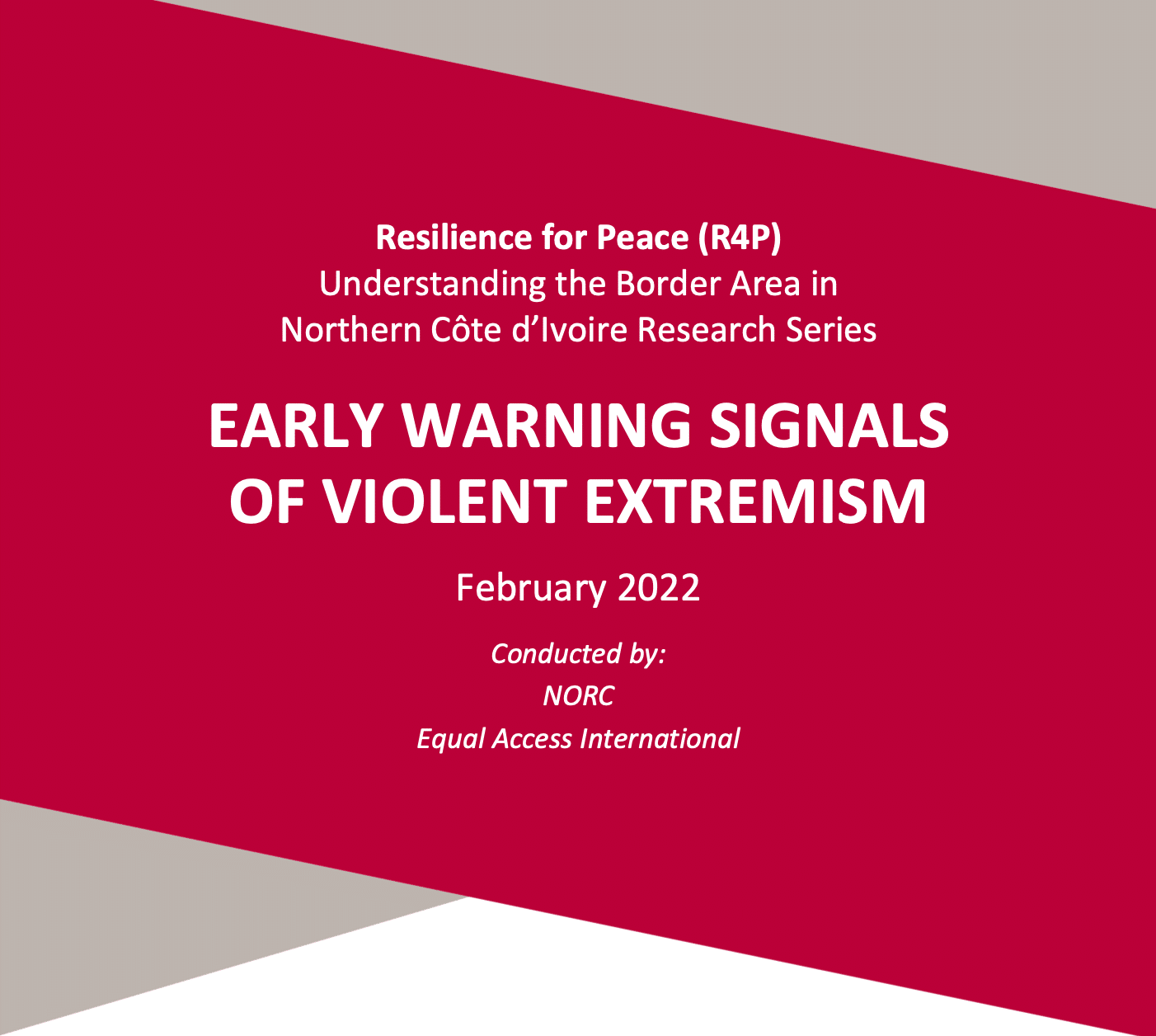

Early Warning Signs of Violent Extremism
The USAID Resilience for Peace (R4P) Project implemented a survey in northern Côte d’Ivoire to further understand views of violent extremism and strategies of resilience in the region.
A Project of —
Bagoué, Bounkani, Folon, Poro, Tchologo, 2022, Economic activities (illicit), Fake news, rumors and hate speech, Local governance, Security governance
Understanding the Border Area in Northern Côte d’Ivoire Research Series
The USAID Resilience for Peace (R4P) Project implemented a survey in northern Côte d’Ivoire to further understand views of violent extremism and strategies of resilience in the region. The survey explored views about socioeconomic conditions and governance, the security situation and service provision, and assets of resilience. The effort also included a series of questions to capture early warning signals (EWS), which are used as a measure to assess the potential for outbreaks of violence and conflict. While Côte d’Ivoire has not experienced the same level of violent extremist activity as have its neighbors, Burkina Faso and Mali, the country is nevertheless vulnerable, particularly the northern region. Bounkani (Nassian, Doropo, Téhini), Tchologo (Dia wala, Ouangolodougou, Larelaba), Poro (M’Bengué), and Bagoué (Tengréla) regions along Côte d’Ivoire’s shared borders with Mali and Burkina Faso are not only geographically proximate to unrest, but the regions are economically marginalized, are challenged by wide income disparities, and have limited government service provision.
EWS are vital for assessing the political, economic, and social conditions that contribute to vulnerabilities to conflict, extremist violence, and other forms of instability. EWS enable the development of resilience strategies that can help communities adapt, mitigate, or prevent conflict and violence. These are explored in Côte d’Ivoire, with the aim of tracking signal indicators over time.
Read more about the research here.